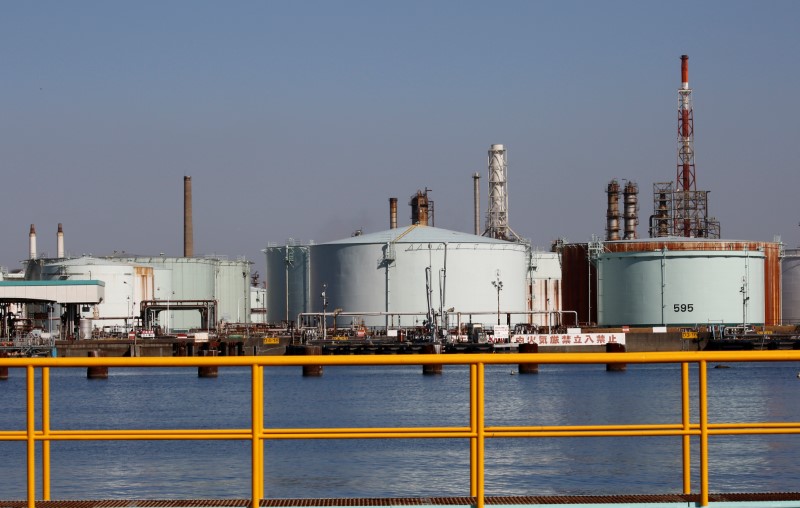By Geoffrey Smith
Investing.com -- Crude oil prices surged higher on Tuesday in a broad risk-on rally in parallel with equities, as markets bet on the likelihood of aggressive reflationary policies in the aftermath of Tuesday’s U.S. elections.
By 11:15 AM ET (1615 GMT), U.S. crude futures were up 2.9% at $37.86 a barrel, their highest in five days, while Brent futures were up 2.3% at $39.88 a barrel.
U.S. gasoline futures were up 2.6% at $1.0795 a gallon, supported in part by data showing a rebound in U.S. gas demand from last week’s surprisingly sharp dip. GasBuddy’s Patrick de Haan said via Twitter demand over the last two days had been up 3.0% week-on-week.
However, in the short term, the market will be led more by the weekly estimate of U.S. crude and product stockpiles from the American Petroleum Institute, which are due at 4:30 PM ET, as usual. Analysts expect stockpiles to have risen by just under 2 million barrels, after last week’s build of 4.58 million barrels.
There was also some support for the longer-term outlook as Algeria, which holds the rotating presidency of OPEC, called for the group to freeze its current output levels for another few months, given that fresh restrictions on economic and social life in Europe and – probably – the U.S. due to the coronavirus are likely to keep demand depressed through the winter.
At present, OPEC and allies led by Russia intend to raise their output by 2 million barrels a day, as of the start of next year.
Algeria’s Oil Minister was quoted by newswires that both Saudi Arabia and Russia were trying to convince other countries of the need to postpone the increase. That’s important because those two have generally been able to impose their will on the rest of the group for the last two years by acting in concert.
Most OPEC members need higher prices to balance their budgets. Even Russia, whose budget balances easily at levels around $40, convened a meeting with its biggest oil producers on Monday to discuss the situation, according to Russian media. Details of its outcome were scant.
The pandemic’s effect on world demand is a reminder to some that oil cycle trends are different from those of the U.S, political cycle.
“The two mega-trends that the winning President will inherit in energy are absolutely firmly established and unlikely to turn as a result of party politics,” said Paul Sankey of Sankey research in a note to clients. “The mega-trend of the past decade was the growth in U.S. oil supply. That reversal is well underway.”
Within that broader framework, analysts still expect oil prices to be supported by any U.S. stimulus package, even one that that aims to transition the U.S. economy to greener sources of energy.
